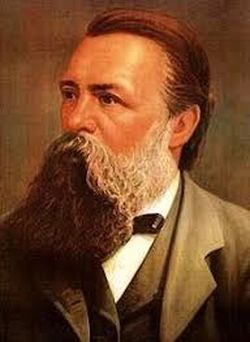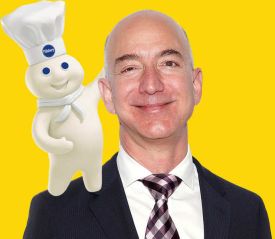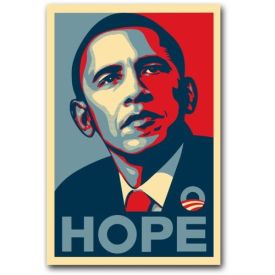Trying times
From The New Criterion“It’s time to give socialism a try” wrote Elizabeth Bruenig, an opinion columnist, in The Washington Post in March. As you may have heard, The Washington Post is owned by Jeff Bezos who, on the same day that Ms Bruenig’s article appeared, was identified as the richest person in the world, with a fortune of $112 billion. Within days, Forbes, which makes it its business to know such things, had amended that figure on the basis of a surge in the Amazon.com stock price to $130 billion. There is no record of any reproof by “the world’s first centi-billionaire” of his employee for denigrating the economic system which had enabled him to amass such fabulous riches, but since The Washington Post under his ownership has been moving inexorably in the ideological direction of The Daily Worker, you wouldn’t really expect there to be. Mr Bezos has become just the latest rich man in the tradition established by Friedrich Engels and continued by George Soros to try to ingratiate himself with potential anti-“capitalist” revolutionaries by subsidizing them.
 |
| Engels |
Not that Ms Bruenig would appear to know anything about that. The word “time” in her headline implies some sense of historical perspective, but there turns out to be none. Second only to “capitalism” among the things that she dislikes is what she calls “everyday Fukuyama-ism,” and yet she herself may be the only living exponent, not excepting Francis Fukuyama himself, of the pure “End of History” thesis. For her indeed, history is so far ended that it is as if it never existed. If she is aware that the historical moment for giving socialism a “try” has ever occurred before in human history, there is no sign of it in the article. After the Twitter-storm that blew up when it was published, she wrote another in reply suggesting that she hadn’t mentioned the Soviet Union or other “totalitarian” socialist examples because that would have implied she was herself a totalitarian socialist — and, by the way, she wasn’t. So her opponents’ bringing them up was to her a sign of their “bad faith,” a concept she thinks was invented by Jean-Paul Sartre.
Her eagerness to accuse anyone who disagrees with her of lying is just one more sign of the times on the Washington Post op ed pages. When someone else in the Twitter-thread mentioned Venezuela (Ms Bruenig is not in favor of that either, it seems), one of her stoutest defenders denied that Venezuela was socialist at all. Nicolás Maduro thinks it is. Hugo Chávez and Fidel Castro both thought it was. International fans of the Bolivarian Revolution like Jeremy Corbyn, leader of the British Labour Party, think it is. But what do these people know? “Socialism,” for Ms Bruenig and the many who think like her, has only a sort of ideal existence — the sort which admits of one day, in the op-ed writer’s airily imagined future, being “tried” — because the past has been effectively abolished as an irrelevance in today’s political culture, as in today’s educational system. Socialism no longer means what it has meant or even what it does mean to most of the world, but only what she wants it to mean.
Such claims to proprietorship over language are also a claim against history. “When I use a word,” as Lewis Carroll’s Humpty Dumpty put it, “it means just what I choose it to mean — neither more nor less.” And when Alice questions, “whether you can make words mean so many different things,” he replies: “The question is . . . which is to be master—that’s all.” One reason why Elizabeth Bruenig could think of no real-world examples of the economic régime she was advocating — she eventually settled on Norway — was that real-life socialists themselves traditionally seek such mastery over their own past. “He who controls the past controls the future,” Orwell wrote. “He who controls the present controls the past.” That’s why, down at the Ministry of Truth they’re working overtime to alter the records of the past, in order to ensure the state’s control over memory, and thus the past, themselves.
Of course that’s all highly totalitarian, as Ms Bruenig would no doubt remind us, but it’s not as if she did not aspire to her own, though necessarily less-unlimited, Big Brother-like control of the past. If your project is to tear down what is in favor of what (you hope and believe) only might be, you were well-advised to keep people’s focus on that imaginary future instead of the actually existing past, which might start to look pretty good when change begins to get difficult, as socialist change has rather a habit of doing. For the same reason, conservatives are now routinely charged with, among their many other sins, nostalgia — as if any appeal to the past must be treated as false and distorted by definition. Applied to marriage and the family, that is a favorite trope of Stephanie Coontz in books like The Way We Never Were: American Families and the Nostalgia Trap (a new edition was published by Basic Books in 2016) which sees traditional views of marriage and family-formation as being hopelessly compromised by their own imperfections in practice.
The point of Edward Baptist’s The Half Has Never Been Told: Slavery and the Making of American Capitalism (Basic Books, 2014) is that America’s economy as well as its governing institutions were founded on slave labor and therefore, to that extent, must be treated as illegitimate. Any potential controversy about this claim has perhaps been limited because The Economist was forced to withdraw and apologize for a negative review of the book. (See “The Uses of Outrage” in The New Criterion of November, 2014). Like Ms Bruenig’s critics, the reviewer must have been guilty of bad faith. And the Baptist thesis has now become axiomatic for the school of black scholarship represented by Ta-Nahisi Coates. Tasha Williams goes even further by writing that “slavery was a critical factor in the economic growth of the U.S. and the rise of global capitalism.” (Emphasis added). Much of the labor of today’s historical profession, such as it is, now goes into this kind of demythologizing (and thus delegitimizing) of the past — ultimately in the service of the progressive project.
That, as Ms Bruenig’s article suggests, is not just the transformation of economic reality (which is a more accurate name for the socialist construct of “capitalism”) but the short-circuiting of all debate and all possibility of debate by the demand for putative victims’ rights over their own history. That’s why it has become not only bad taste but bad faith to bring up historical counter-examples, since that history can be ruled irrelevant, or false, at will. More importantly, the fantasy (“socialism”) can be put on a level with the reality (“capitalism”) as if it were simply a matter of moral and political will to choose one over another. Yet if it were so, who would not choose such a pleasant-sounding and apparently eminently achievable fantasy?
This is classic utopian reasoning — or perhaps we should call it billionaires’ reasoning, since there is no utopian like a billionaire with a social project in his sights and an absolute conviction of his own righteousness. Nor is it limited to economics. A couple of weeks before the Bezos-Post’s socialist apologia appeared, there was a small controversy in the British press sparked off by Colonel Tim Collins, Commander of the 1st Battalion of the Royal Irish Regiment during the invasion of Iraq in 2003, who acquired a measure of fame in Britain and beyond for his stirring speech to his troops on the eve of battle. Col Collins, who has since retired from the army, complained that the BBC’s coverage of the centenary of World War I, which will reach its culmination this year, had been limited to the war’s most sanguinary and tragic aspects.
With the centenary of the end of the First World War looming (he wrote), one might not realise from the TV series recalling those momentous times that Britain and her Allies won the war. Last year’s coverage of the Passchendaele anniversary by the BBC was a prime example. While paying appropriate tribute to the sacrifice of the many soldiers who lost their lives, it was saturated in grief, in the horror and pity of war. . . When the time comes to mark 100 years since the Armistice later this year, I am calling on the BBC to also note that we are marking a victory.
This statement of simple historical fact was treated by some as a species of obscenity. It inspired an op ed in The Daily Telegraph by the Australian author Paul Ham, who has written two books about the war, headed: “The ‘victory’ of 1918 destroyed our civilisation. Nothing can make that worthwhile.” By applying Catholic “Just War” theory to the war, Mr Ham finds it very easy to show that the horrible sacrifices on both sides were not “worth it” and therefore unjust, but it could be argued that this only shows what an academic exercise Catholic “Just War” theory is, and how limited its usefulness in real world situations like that of August, 1914, which did not admit, at least not for the Western Allies, of a third option between fighting the German invasion of Belgium and France and submitting to it.
We ought always to be suspicious about retrospective moralizing about the past, which didn’t have the luxury that we enjoy of being able to balance costs that had yet to be incurred against benefits that remained hypothetical in order to decide if a prospective course of action was “worthwhile” or not. Moreover, the men who took the world to war in 1914 were more clear-sighted than we are in at least one respect, since they well understood the binary choice that confronted them in a war fought for honor — as we, having deliberately wrecked the Western honor culture in response to that war’s sacrifices, no longer do. Mr Ham believes that anything so terrible as the First World War should not have happened, and his wish that it should not, thereby becomes in his own mind a claim against the reality that it did. If he can wish against it a century later, therefore, the people who took the world to war could have done the same and the war would not have happened.
It is childish thinking and yet surprisingly common. So common as to be uncontroversial. Margaret MacMillan, author of The War That Ended Peace (Random House, 2013), one of the most highly respected histories of the war’s origins, also thinks that it could have been wished away. “If we want to point fingers from the twenty-first century,” she writes — and who doesn’t, after all? — “we can accuse those who took Europe into war of two things. First, a failure of imagination in not seeing how destructive such a conflict would be and second, their lack of courage to stand up to those who said there was no choice left but to go to war. There are always choices.”
Maybe so, but they are not always the choices we think they are. In the case of the men of 1914 the choice was not between the peaceful status quo ante and the slaughter to come — which, by the way, most of them did foresee, if only dimly — but, as all decisions to go to war end up being, between fighting and surrendering. Surrender may look to us like the preferred option in retrospect (as it always does to one side eventually), but at least we ought to be able to understand why it didn’t to our ancestors of a century ago. And it is merely silly to pretend that surrender is not the only alternative to fighting against an enemy invasion. Besides, if the choice were a simple one between peace and war, what kind of monster and sociopath would you have to be to choose war? Utopian reasoning always allows you to set a more or less unsatisfactory present against a merely imaginary future and treat them as being on all fours with one another. Hm. Do I choose millions of dead and more millions of bereaved or a radiant golden future where wars don’t happen? Not difficult is it, when you put it like that? Which is the point of putting it like that, as our infantilized media now routinely do.
There was another example on this side of the Atlantic at about the time that Col Collins and his critics were having it out in Britain. After a teenage fantasist of a type now all too familiar to us (whom, as usual, we forbear to name) went on a shooting rampage at his former high school in Florida, killing 17 and wounding as many more, the media did what the media now always do when such things happen, which is to recycle their perennial fantasy of a world without guns set against a world bristling with guns and malevolent types itching to use them. Once again, the choice was plain, simple, obvious and wrong: dead kids or a gun-free country. All you had to do to show you had made the socially acceptable choice was to denounce the malicious and mysterious power of the NRA over the nation’s politicians.
Only this time, somebody at CNN had the bright idea of offering this utopian choice to the teenage survivors of the massacre on national television and betting that no one would dare to criticize them when, as expected, the youngsters — or those who appeared on camera — and the grieving parents passionately argued for utopia. It’s hard to blame them, really. A bit of virtue signaling and you get to be an instant celebrity — if only for an instant — as part of the great chorus of media self-righteousness which never seems to take a break anymore but only shifts its focus occasionally from the iniquities of Donald Trump to those of some other bête noire such as the NRA. When you think about it, it was only a matter of time before some 16-year-old on CNN was accusing Senator Marco Rubio of complicity in murder to the cheers of his coevals.
Elizabeth Bruenig is also quite a young person, I believe. And, like the Florida teens, she appears to have enjoyed an education light on historical facts but very heavy indeed on historical certainties, the understanding of which provide one with a warm glow of confidence in one’s moral superiority to those without it that may be expected to last all one’s life long. It’s hard to see how such people can ever develop a capacity for reasoning that is not utopian and moralistic or any view of the past which is anything other than a struggle between the forces of light and darkness. But without the hope that they can, there doesn’t seem to be much hope for our country, or its self-understanding.
Discover more from James Bowman
Subscribe to get the latest posts to your email.






